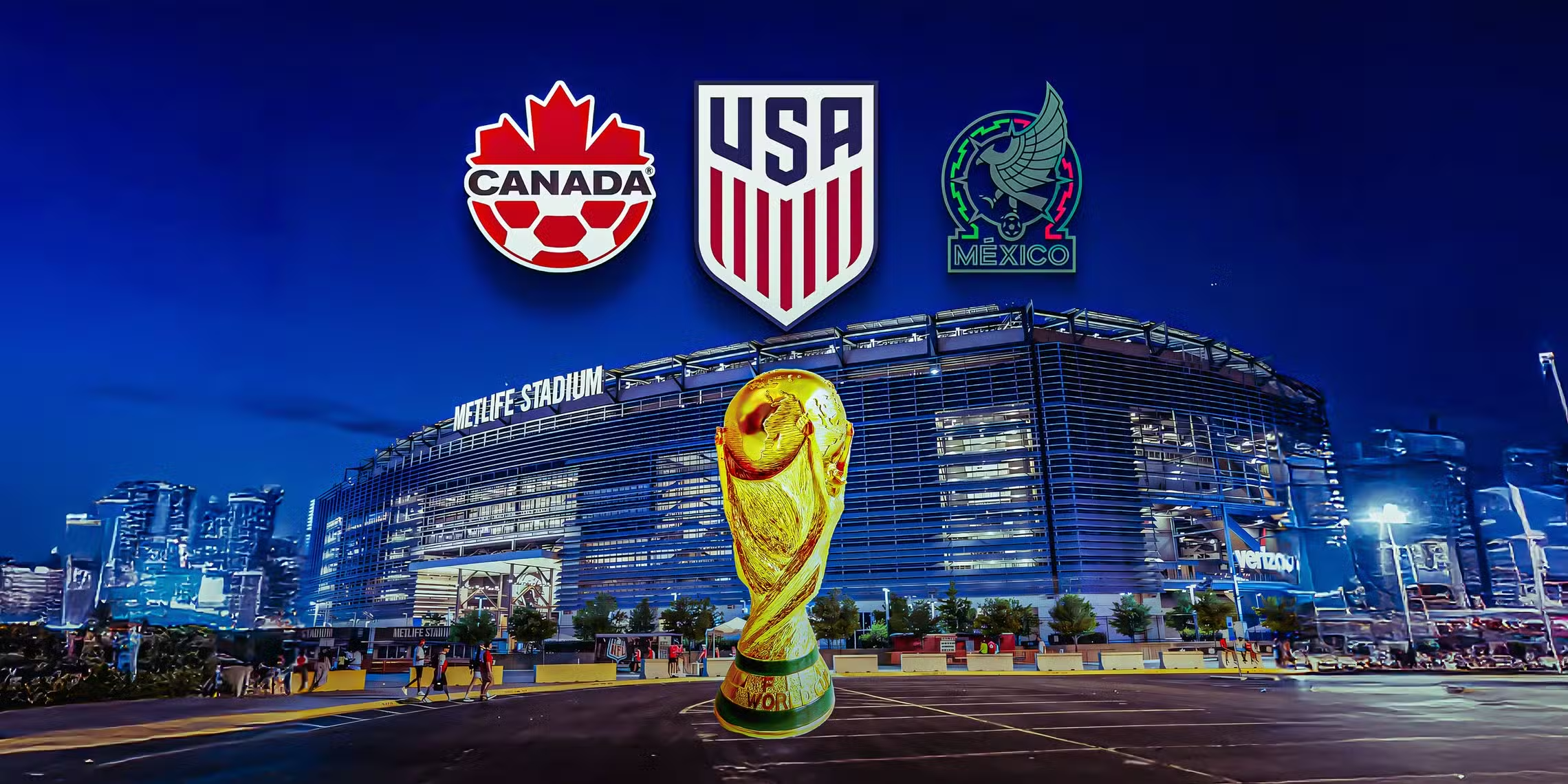Sport
43 Countries Could Be Blocked From 2026 World Cup – 1 Has Qualified Already

The anticipation surrounding the 2026 FIFA World Cup, set to be hosted by the United States, Canada, and Mexico, has been significantly dampened by the potential implementation of a controversial travel ban proposed by President Donald Trump. This policy, if enacted, could result in the exclusion of up to 43 countries from participating in the prestigious tournament, casting a shadow of uncertainty over the event’s global appeal and inclusivity.
The proposed travel ban, as reported, entails a “three-tier” system, categorizing nations based on the severity of restrictions imposed on their citizens’ entry into the United States. This policy, designed to address national security concerns, has inadvertently placed the footballing ambitions of numerous countries in jeopardy.
FIFA, the governing body of world football, has already taken decisive action by banning three countries from the 2026 World Cup. Russia’s exclusion stems from their invasion of Ukraine, while Pakistan and Congo face bans due to “failure to adopt a revision of the PFF constitution” and “alleged third-party interference in its affairs,” respectively. However, the potential ramifications of the United States’ travel ban far exceed these isolated cases.
The most concerning aspect of the proposed ban is its potential impact on countries that have already qualified or are expected to qualify for the World Cup. Iran, for instance, has secured its place in the tournament after topping the AFC Group A table. Yet, under the proposed “full travel ban” category, their participation hangs in the balance.
Other nations facing potential exclusion include Cameroon and Venezuela, both of whom harbor realistic ambitions of competing in the World Cup. The prospect of these countries being denied the opportunity to participate has sparked outrage within the footballing community.
The three-tier system, as outlined by the New York Times, categorizes nations into those facing a “full travel ban,” those with “sharply restricted” visas, and those given “60 days to address concerns.” This complex framework has created a climate of uncertainty and anxiety among the affected nations.
In addition to Iran, countries such as North Korea and Venezuela are also slated for a “full travel ban,” further compounding the potential impact on the World Cup’s composition. Other nations at risk include Sudan, Burkina Faso, and Cape Verde, all of whom face potential expulsion.
The situation has prompted urgent discussions between the United States government and FIFA, as reported by beIN Sports. FIFA is reportedly seeking a resolution that would allow countries like Iran to travel freely for the competition, despite any potential ban.
The potential exclusion of numerous countries from the World Cup raises serious questions about the tournament’s integrity and inclusivity. The event, intended to celebrate global unity and sporting excellence, risks being overshadowed by political controversies.
The implications of the travel ban extend beyond the footballing realm, potentially straining diplomatic relations between the United States and the affected nations. The sporting world, often seen as a platform for fostering international goodwill, could become a battleground for political disputes.
The uncertainty surrounding the travel ban has cast a pall over the preparations for the 2026 World Cup. Football fans worldwide are anxiously awaiting a resolution that would ensure the tournament’s inclusivity and preserve its sporting spirit.
The situation underscores the delicate balance between national security concerns and the principles of international sporting events. FIFA’s efforts to mediate between the United States government and the affected nations highlight the organization’s commitment to upholding the World Cup’s global appeal.
The potential exclusion of numerous countries from the 2026 World Cup has sparked widespread condemnation from footballing organizations and human rights advocates. The event, seen as a symbol of unity and cultural exchange, risks being tarnished by discriminatory policies.
The coming months will be crucial in determining the fate of the affected nations. FIFA’s negotiations with the United States government will be closely monitored by football fans worldwide, who hope for a resolution that would preserve the World Cup’s inclusivity and integrity.
The potential exclusion of 43 countries from the World Cup has created a sense of unease and uncertainty. The tournament, intended to unite nations through the shared passion for football, faces the prospect of becoming a divisive and exclusionary event.
The footballing world awaits with bated breath to see how this complex situation unfolds. The decisions made by the United States government and FIFA will have far-reaching consequences for the 2026 World Cup and the future of international sporting events.

 Sport11 months ago
Sport11 months ago“I’m not trying to criticize Ancelotti, but I’m not happy with him for benching that player”: Bellingham Expresses Frustration Over Ancelotti’s Tactical Decision

 Sport11 months ago
Sport11 months agoBREAKING: Manchester City vs Liverpool Clash Cancelled! Title Race Takes a Twist

 Sport11 months ago
Sport11 months agoArsenal Poised for January Swoop on €70 Million Star Dusan Vlahovic

 Sport11 months ago
Sport11 months agoWHAT ON GOD’S GREEN EARTH DID WE JUST SEE?!

 Sport11 months ago
Sport11 months agoReal Madrid: Carlo Ancelotti’s Surprising Revelations About an Unexpected Quality of Vinicius

 Sport11 months ago
Sport11 months agoBREAKING: Arsenal’s Champions League Quarterfinal Opponent Revealed After Monaco’s Dramatic Win – Tough Challenges Await Arteta’s Men

 Sport11 months ago
Sport11 months agoChelsea Players Facing Suspension as Yellow Cards Mount

 Sport11 months ago
Sport11 months agoKey Arsenal Player Set for Return as Gunners Face Struggling Everton
















